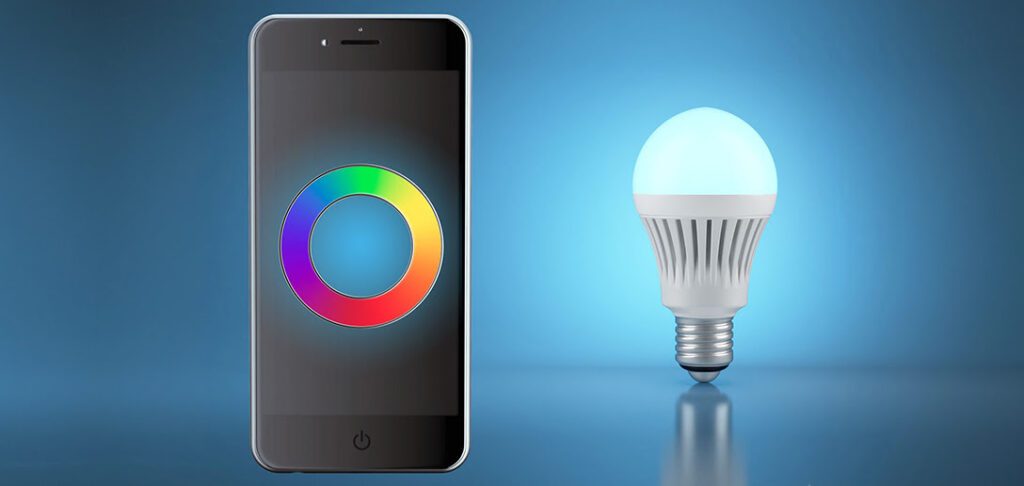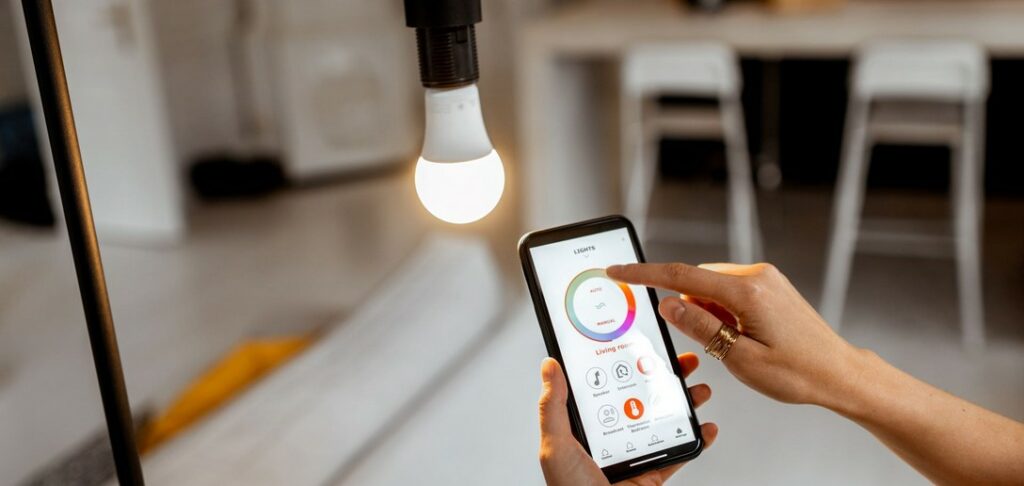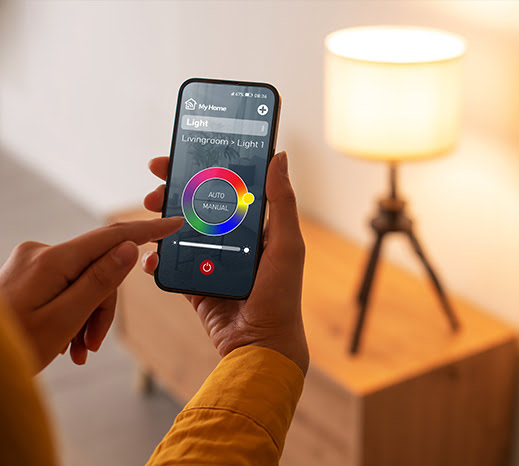Technology is accelerating at speeds unseen in human history, but we must pay tribute to one of the greatest inventions of all time—the light bulb! The light bulb changed the game for worker productivity and reduced fire hazards compared to gas lighting, which was previously the norm.
The light bulb remains an integral part of our daily homes—and today, we see further advances of the light bulb in the form of smart lighting. But what exactly is smart lighting, and how does it work?
4 Star Electric is here to answer those questions for you. Below, we’ll go over just what smart lighting is, how it’s installed, and some pros and cons of using smart lights in homes and businesses.
See also:
What is Smart Lighting?
Smart lights are usually light-emitting diodes (LEDs), or smart LEDs with many advanced features not commonly seen in average light bulbs. Smart lights are often used in homes and businesses that have internet access, and by people who want customized settings.
How Do Smart Light Bulbs Work?
Smart lights contain software that allows them to connect wirelessly to the internet. Some require a hub to communicate with them, while others do not. Smart lights that have sensors in them may be capable of recognizing motion or the time of day and turn on or off accordingly.
To control these lights, you communicate with them through a smartphone, tablet, or smart assistant—like an Echo or Google speaker. With the use of an app, these lights can be set up, adjusted, and scheduled.
How Much Do They Cost to Install?
Hiring an electrician to install your smart lights can ensure that the lights are working properly and adjusted to your specific needs. The cost for these services ranges depending on what type of smart systems you’re wanting to get installed, and how many light fixtures are being replaced with smart lights. Contact the experts at 4 Star Electric for professional advice on smart lighting in your home.
How Much Money Can They Save You On Electricity?
Smart lights are commonly more expensive than regular bulbs, but in the long-term these bulbs have money-saving benefits you won’t regret. Most smart lights are LEDs, which mean they are extremely long-lasting and energy efficient.
Most LEDs are up to 90% more efficient and last at least 15 times longer than incandescent light bulbs. More efficiency means less energy usage, resulting in lower electricity bills.

Different Features of Smart Lights
Smart lights are becoming increasingly popular due to the variety of features they contain:
- Colour Changing: one of the most noticeable features of smart lights is the ability to change colour—whether it be setting the mood for a quiet evening or setting colours to match a festive theme.
- Strobe Light: equally useful as a safety feature or for livening up a party, some apps associated with smart lights provide you the option for flashing lights.
- Voice Commands: nothing says you’re living in the future like speaking to your lights and having them follow your commands, right? Smart lights can be set up through your smart devices to be voice activated.
- Scheduling: smart lights can be scheduled to turn on or off at set times through your smart devices. This feature is appealing for those with consistent schedules.
- Geofencing: geofencing uses the GPS in your phone to alert the lights when you are nearby. This allows the lights to turn on when you get close to home, or turn them off if you’ve left the house.
Pros & Cons of Smart Lights in Homes & Businesses
With most technological devices, there are pros and cons to each. Let’s take a look:
Pros
- Very energy efficient
- Low cost on electricity bills
- Long-lasting
- Low-maintenance
- Compatible with the majority of light sockets
- Better for the environment
- Sets the ambiance in your home or business
Cons
- The initial cost of smart lights are more expensive
- Requires a stable and consistent wi-fi connection
- Some smart lights require an additional hub to use them

Get Brighter by Switching to Smart Lighting
Smart lights can be a great addition to your home or business if you are looking for a customizable experience. If you’re looking to upgrade your home’s lighting system to smart lighting, 4 Star Electric has the knowledge and experience to guide you in the process. Contact our expert electricians at 4 Star Electric to assist you for all your smart lighting needs.
Frequently Asked Questions About Smart Lights
How Long Does it Take to Install Smart Lights?
Installing smart lights usually does not take any longer than switching out a light bulb. However, downloading the app and setting up your specific schedules and preferences can be time consuming.
How Long Do Smart Bulbs Last?
Thanks to the longevity of LEDs, smart bulbs can provide between 50,000 and 100,000 hours of light. This is equivalent to roughly 14 years if you keep them on for 10 hours a day.
How Do Smart Lights Impact Business?
Smart lights can be used to set a tone or mood for your business. For example, restaurants may use specific lighting to set a mood for the environment. Additionally, smart lights can save your business a lot of money on energy bills and maintenance costs.
Can Smart Lights Be Used Outdoors?
Yes, smart lights can be used outdoors, but like most electronics, they do not do well in wetter environments. However, as smart lights continue to be innovated, some smart bulbs have been specifically designed for outdoor use, meaning they can take on more of the harsh elements than smart bulbs made for indoors.
What Shape and Size Do Smart Lights Come in?
Smart bulbs come in most shapes and sizes of bulbs you would find around your house already. This means that the majority of your lights can be replaced with smart lights.


